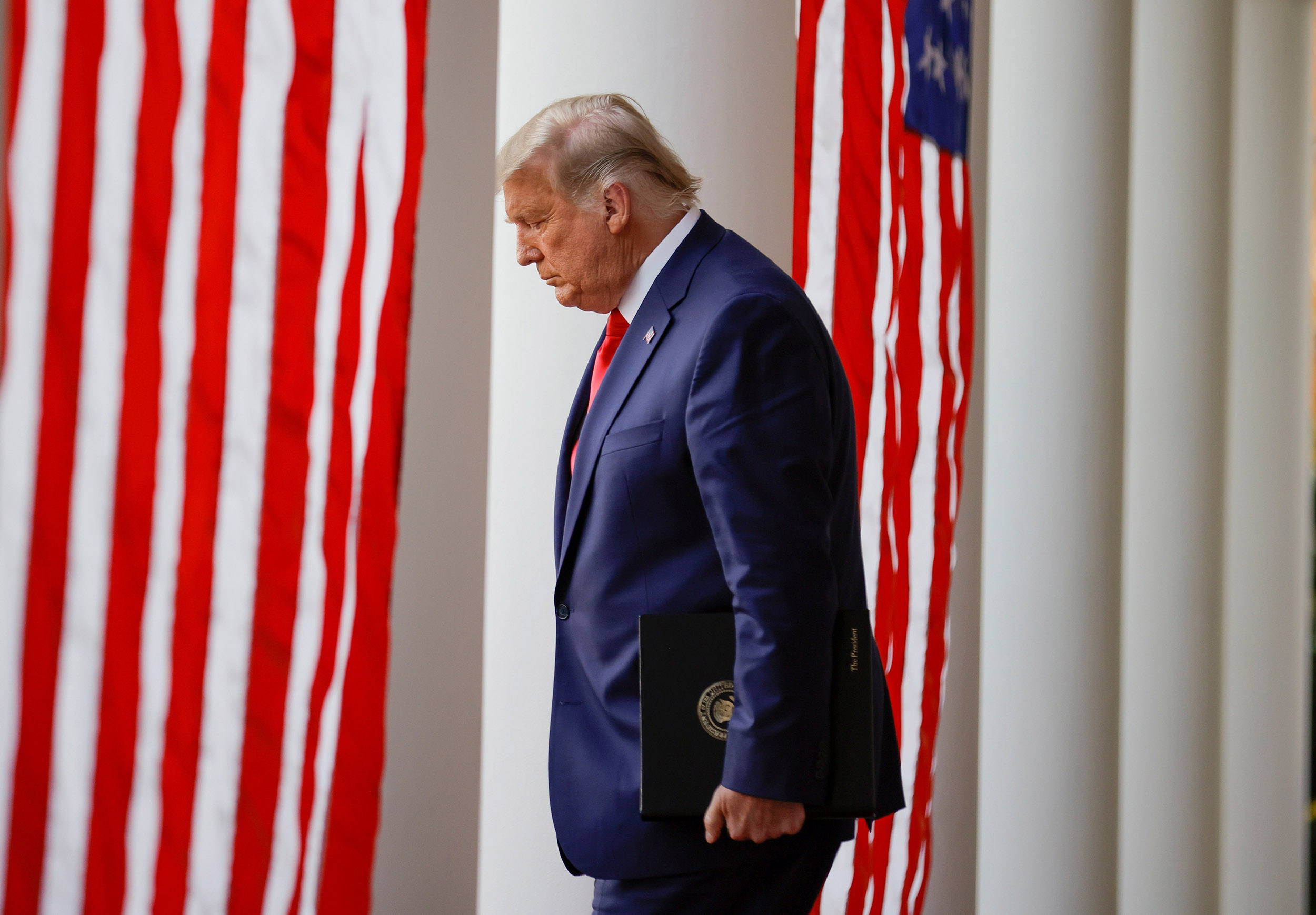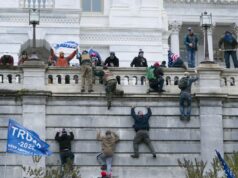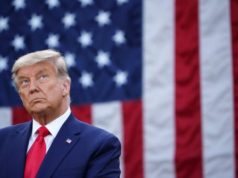 Just five days to his inauguration President-elect Donald J. Trump has questioned why the United State was still spending money to fight the Boko Haram insurgency in Nigeria, why all of the schoolgirls kidnapped by the group have not been rescued and whether Qaeda operatives from Africa are living in the United States.
Just five days to his inauguration President-elect Donald J. Trump has questioned why the United State was still spending money to fight the Boko Haram insurgency in Nigeria, why all of the schoolgirls kidnapped by the group have not been rescued and whether Qaeda operatives from Africa are living in the United States.
He went further questioned the effectiveness of one of the more significant counterterrorism efforts on the continent.
According to New York Times Trump in a four-page write up raised Africa-related questions.
“How does U.S. business compete with other nations in Africa? Are we losing out to the Chinese?” asks one of the first questions in the unclassified document provided to The New York Times.
That is quickly followed with queries about humanitarian assistance money. “With so much corruption in Africa, how much of our funding is stolen? Why should we spend these funds on Africa when we are suffering here in the U.S.?
Some of the questions are those that should be asked by a new administration seeking to come to grips with the hows and whys behind longstanding American national security and foreign assistance policies. But it is difficult to know whether the probing, critical tone of other questions indicates that significant policy changes should be expected.
On terrorism, the document asks why the United States is even bothering to fight the Boko Haram insurgency in Nigeria, why all of the schoolgirls kidnapped by the group have not been rescued and whether Qaeda operatives from Africa are living in the United States. And it questions the effectiveness of one of the more significant counterterrorism efforts on the continent.
“We’ve been fighting al-Shabaab for a decade, why haven’t we won?” poses one question, referring to the terrorist group based in Somalia that was behind the Westgate mall attacks in Kenya in 2013.
Although the document represents a first look at how the new administration might approach policy toward Africa, a subject that was rarely touched on during the campaign, officials with the Trump transition team did not respond to queries about the list.
“Many of the questions that they are asking are the right questions that any incoming administration should ask,” said Monde Muyangwa, the director of the Africa program at the Woodrow Wilson Institute.
But she also noted that “the framing of some of their questions suggests a narrower definition of U.S. interests in Africa, and a more transactional and short-term approach to policy and engagement with African countries.”
Ms. Muyangwa said the queries could signal “a dramatic turn in how the United States will engage with the continent.” J. Peter Pham, who has been mentioned for the job of assistant secretary of state for African affairs in a Trump administration, said he does not expect Mr. Trump to do a complete U-turn in relations with Africa.
Mr. Pham, director of the Africa program at the Atlantic Council, said he expects Mr. Trump will emphasize fighting extremism on the continent, while also looking to enhance opportunities for American businesses.
In other questions, the Trump transition team challenges the benefits of a trade pact known as the African Growth and Opportunity Act. “Most of AGOA imports are petroleum products, with the benefits going to national oil companies, why do we support that massive benefit to corrupt regimes?” the questionnaire asks.
Yet Mr. Pham said he expected a Trump administration would support the pact. “AGOA has created more than 120,000 jobs in the United States,” Mr. Pham said in an interview.
A big unknown, though, is how a Trump administration will handle foreign assistance to the continent and its 54 nations.
President George W. Bush quadrupled foreign assistance levels to African countries, and President Obama largely maintained that, even as his administration was making cuts elsewhere.
Even so, the amount of American aid in 2015 to other critical allies — Afghanistan ($5.5 billion), Israel ($3.1 billion), Iraq ($1.8 billion) and Egypt ($1.4 billion) — far exceeded the approximately $8 billion for all of sub-Saharan Africa.
The questions seem to reflect the inaccurate view shared by many Americans about how much the United States spends on foreign aid and global health programs. Polls show that Americans believe the country spends 25 percent of its budget on foreign aid — but the truth is that foreign aid is just 1 percent of the federal budget.
“We’ve been hunting Kony for years, is it worth the effort?” poses another series of questions related to Joseph Kony, the warlord head of Uganda’s violent guerrilla group the Lord’s Resistance Army, who has eluded the authorities for three decades. “The LRA has never attacked U.S. interests, why do we care? Is it worth the huge cash outlays? I hear that even the Ugandans are looking to stop searching for him, since they no longer view him as a threat, so why do we?”
The hunt for Mr. Kony and his fighters has generated a huge amount of publicity around the world, in large part because of a video on his elusiveness and brutality, “Kony 2012,” that has been viewed more than 100 million times on YouTube.
But other questions, foreign policy experts say, return to a theme of a continent that has squandered American money and effort. The questions challenge, for instance, a hallmark of Mr. Bush’s Africa policy — the Pepfar program, which has provided billions to fight AIDS and tuberculosis in Africa.
Rex W. Tillerson, Mr. Trump’s nominee for secretary of state, complimented the program, calling Pepfar “one of the most extraordinarily successful programs in Africa” during his Senate nomination hearing.
But, in contrast, the Trump transition questionnaire asks, “Is PEPFAR worth the massive investment when there are so many security concerns in Africa? Is PEPFAR becoming a massive, international entitlement program?”
J. Stephen Morrison, director of the Global Health Policy Center at the Center for Strategic and International Studies, said the questions showed an “overwhelmingly negative and disparaging outlook” on the continent.
“A strange attitude runs through this,” he said. “There’s a sort of recurrent skepticism that Africa matters to U.S. interests at all. It’s entirely negative in orientation.”
But the questions do appear to accurately reflect what Mr. Trump has said publicly about Africa in the few times that he has mentioned the continent.
For instance, during the Ebola crisis in 2014, Mr. Trump took to Twitter to argue that Americans infected with Ebola should not be allowed back into the United States. As two American health workers became critically ill and were airlifted to Atlanta for treatment, Mr. Trump had this to say via Twitter: “Stop the EBOLA patients from entering the U.S. Treat them, at the highest level, over there. THE UNITED STATES HAS ENOUGH PROBLEMS!”
The Ebola epidemic, which killed almost 10,000 people in Guinea, Sierra Leone and Liberia (but no Americans), comes up once in the document.
“How,” the questionnaire asks, “do we prevent the next Ebola outbreak from hitting the U.S.?”
Courtesy: VANGUARD








Wow, Trump might be selfish in nature and he does have some rigid policy but I envy his love for American and it’s citizens I wish African leaders can emulate that. I think his German background has allot to do with that